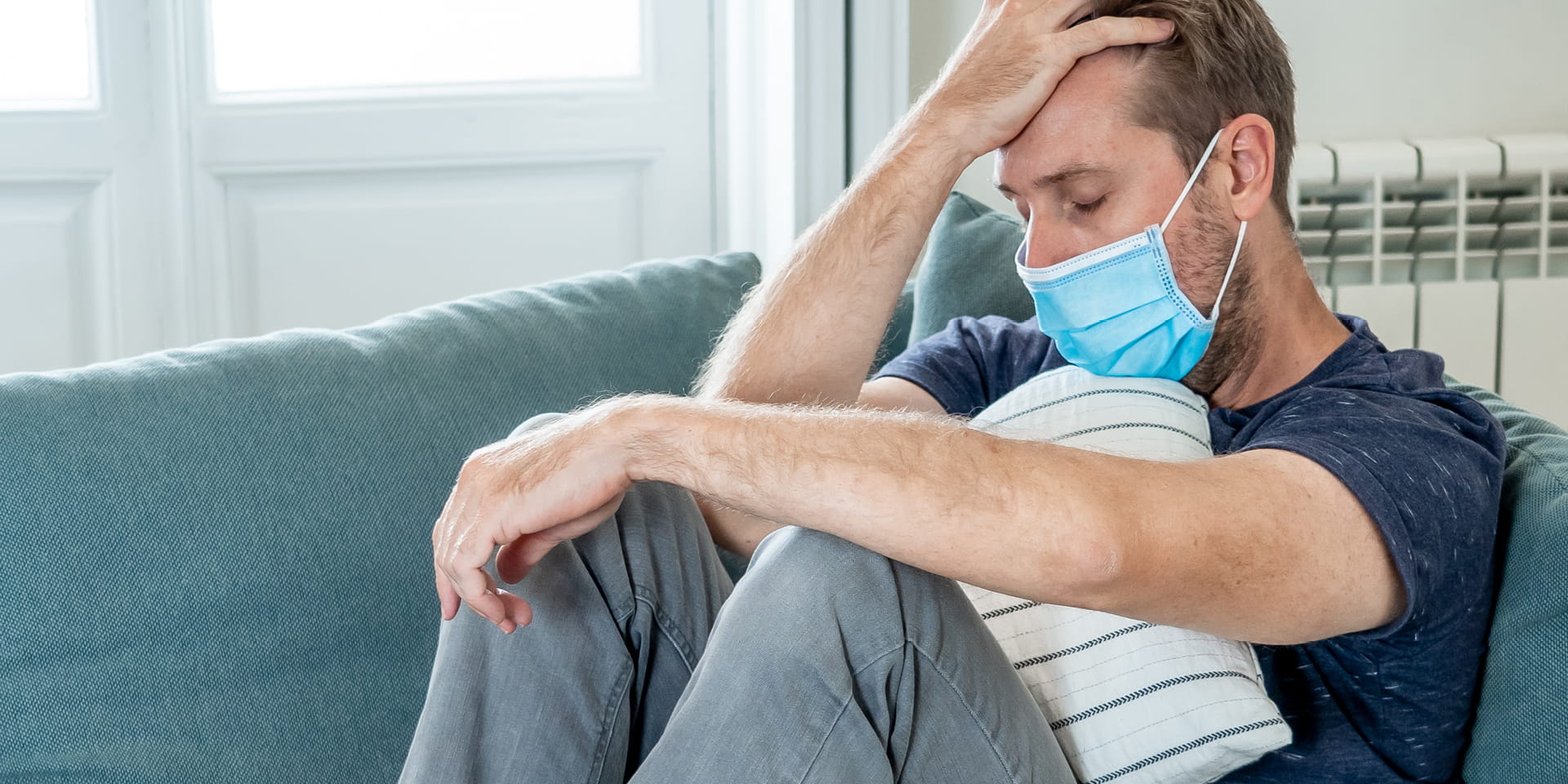Feeling stressed? You’re not alone. “The pandemic has amplified the impact of stress on people’s lives and their bodies,” says Doylestown Health Family Medicine physician Jeffrey Laphen, MD.
Across the United States, 78% of people identified the COVID-19 pandemic as a significant source of stress in their lives, according to the American Psychological Association.
Lifestyle Challenges
“People are dealing with anxiety in day-to-day life, concerned about the well-being of themselves and their families,” says Dr. Laphen. “COVID-19 adds layer upon layer to each interaction, affecting people in their homes, workspaces and relationships. It even limits their ability to participate in stress reduction activities. Then, as people seek to understand COVID-19, they face a vast amount of information, which can be difficult to process. All of this can be overwhelming.”
How Stress and Anxiety Impact the Body
Stress has a significant impact on the body, causing increased heart rate and blood pressure — even panic attacks. Stress also causes tension, which is inflammation and discomfort from a tightening of muscles, often showing up in the neck and shoulders.
“Worry can make it difficult to sleep and harder to focus, and many people are making lifestyle choices based on their feelings of stress, which can actually magnify the problem. For some, that means drinking more alcohol or caffeine, which eventually makes them feel out of kilter. Others may overeat or consume comfort foods to feel better in the moment, but weight gain and extra salt in the diet contribute to high blood pressure,” explains Dr. Laphen, adding that anxiety-related upset stomach may also lead to undereating. Throughout the pandemic, he has seen his patients experience stress-related problems such as:
- Headaches
- Neck and back pain
- Abdominal discomfort and bowel issues
- Episodes of panic, heart palpitations or fluttering
- Chest discomfort
- Teeth grinding and temporomandibular joint dysfunction (TMJ)
- Increased blood pressure and heart rate
- Weight gain or weight loss
Kids Feel Stress Too
As a family medicine physician, Dr. Laphen sees patients of all ages. “Children and teens experience the same issues adults do, but sometimes we have to dig deeper to see when they are feeling a higher level of stress. It is essential for parents and people who interact with kids of all ages to watch for stress.”
Simple Solutions
Simple changes can make a big difference. The first step is to look at your lifestyle. Think about how much you are sleeping and eating. “It’s important to focus on what you put into your body,” explains Dr. Laphen, whose stress reduction basics include:
Practice good nutrition – Include fruits, vegetables and sources of protein spread throughout three meals a day, plus a couple of healthy snacks
Drink plenty of water - Mix in a bit of juice or a slice of lemon if that helps
Keep an eye on alcohol and caffeine intake – Too much can make you feel worse
Get a good night’s sleep – About 7.5 - 8 hours for the average adult, 8 – 10 hours for teens, 9 – 12 hours for younger children
Exercise regularly – Walking is a great way to de-stress
Practice stress reduction activities, such as yoga, deep breathing or meditation
Call your Primary Care Physician
“If at any point, you’re experiencing symptoms or feelings that you’re just not sure why or where it’s coming from, it’s always appropriate to contact your doctor,” says Dr. Laphen. “We can review what’s going on and may bring you in to be seen and evaluated for what you are feeling and experiencing.”
Find a Doylestown Health Primary Care Provider
About Doylestown Health
Doylestown Health is a comprehensive healthcare system of inpatient, outpatient, and wellness education services connected to meet the health needs of the local and regional community. The flagship of Doylestown Health is Doylestown Hospital, a not-for-profit, community teaching hospital with 245 beds and a medical staff of more than 600 providers who deliver the highest quality care in over 50 specialties. Renowned locally, regionally, and nationally, Doylestown Hospital provides superior healthcare and offers advanced surgical procedures, innovative medical treatments, and comprehensive specialty services. Serving Bucks County for over 100 years, Doylestown Hospital is proud to educate and train the next generation of physicians through its family medicine residency program. Ranked as one of the World’s Best Hospitals by Newsweek and 9th in Pennsylvania, Doylestown Hospital is distinguished in both infection prevention and patient experience. Doylestown Hospital is the only hospital in Pennsylvania to achieve 18 consecutive ‘A’ grades for patient safety from Leapfrog Hospital Safety Grade. Learn more at doylestownhealth.org.
